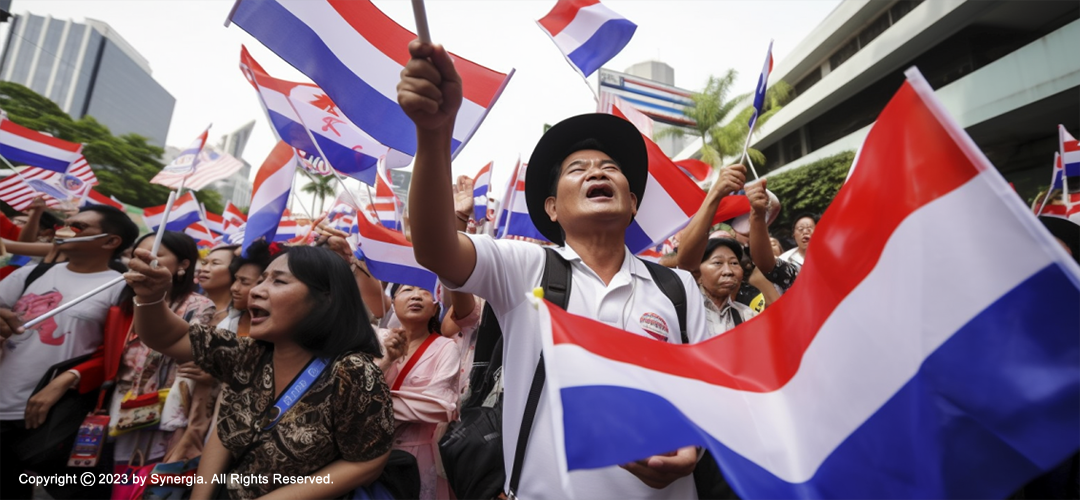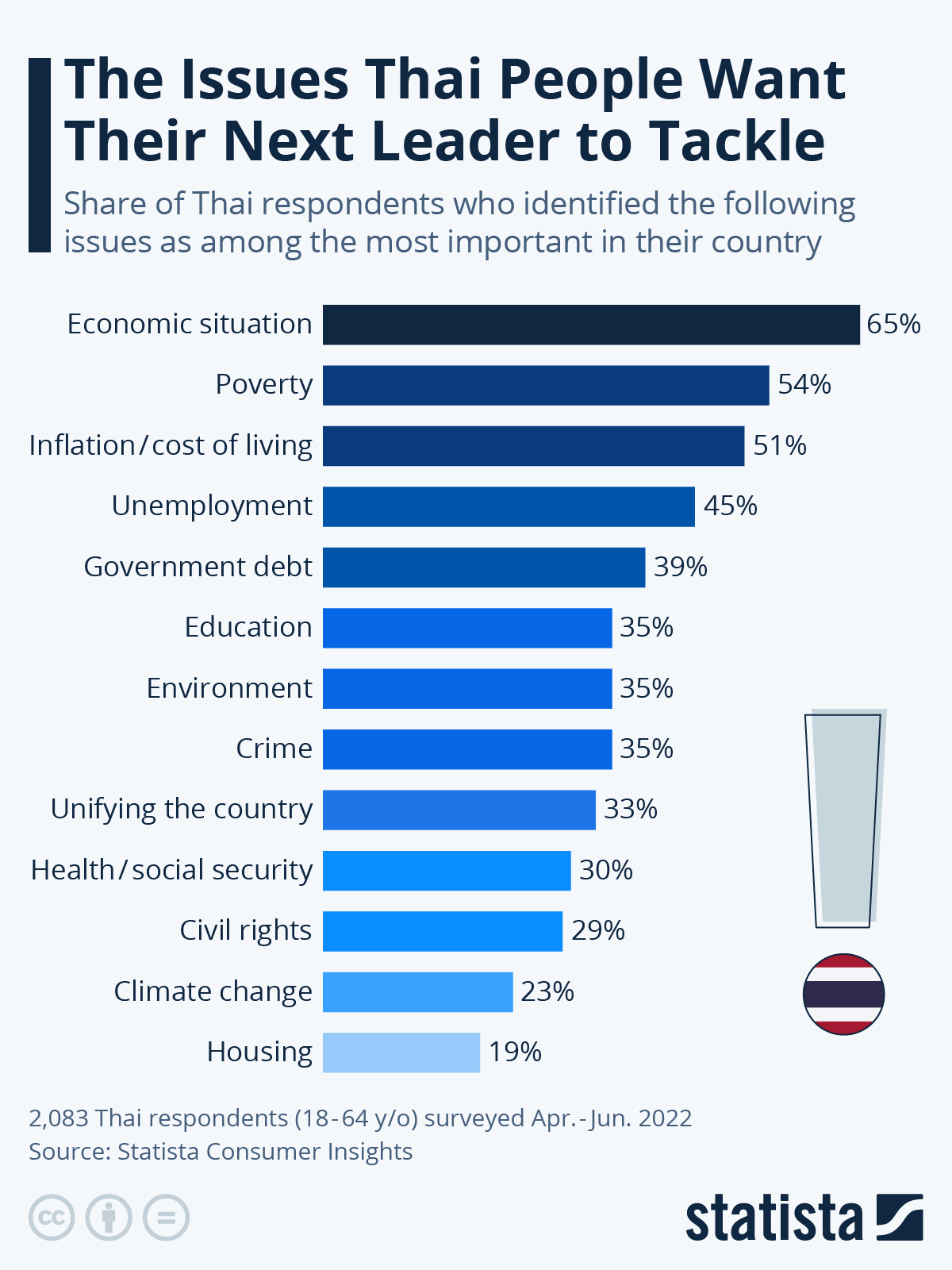Thailand: Will Democracy Prevail?
June 3, 2023 | Expert Insights

The opposition parties have won a striking victory in Thailand’s pivotal. The election results reveal overwhelming public support for a highly progressive party, Move Forward, instead of the governing military-backed parties. The ruling parties won only 15 per cent of the seats (BBC, May 19, 2023). The populist party Pheu Thai followed close behind Move Forward, and the two parties have agreed to form a coalition.
The results are a stunning blow to the ruling military establishment and Prime Minister Prayuth Chan-ocha, who has governed for nine years after leading a coup that supplanted an elected government in 2014. Like Pakistan, Thailand also has a long political history of military rule. The military establishment has ruled on and off for decades, often by ousting elected governments in coups.
However, the election results do not guarantee that the parties can form the government. There are several hurdles that the parties could face.
Background
Thailand has a turbulent political history. It was a kingdom under an absolute monarchy for over seven centuries until 1932, when it became a constitutional monarchy. Since then, it has largely been under the rule of military governments. The military has staged 18 coups since 1933, overthrowing democratically elected governments. The ruling military junta has often abrogated the constitution, issued a new interim charter, or changed the existing constitution to favour its establishment. Thailand has had a total of 20 different charters and constitutions, reflecting its political instability.
However, recent years have witnessed rising public dissatisfaction with the military establishment. In 2020, Prime Minister Prayuth led a harsh crackdown on protesters who called for democratic reforms. Several of the young people who joined the protests campaigned for Move Forward in the elections.
Move Forward has taken a strong stance and committed to substantial reforms, such as reducing the military's involvement in politics. Its ambitious agenda includes writing a new constitution and changing laws protecting the monarchy (royal reform). The party has openly stated that it plans to do away with Thailand's les majeste laws, which criminalise criticism of the monarchy. These laws have so far been sacrosanct in Thailand. The military and the monarchy comprise a powerful conservative establishment, along with influential elites.
The junta government rewrote the country's constitution in 2017 and introduced a new electoral process step favouring its establishment. According to the changed constitution, the prime minister is elected by a joint vote between a 250-member military-appointed Senate and the popularly elected House of Representatives.

Analysis
The election results mark a turning point in Thailand’s history. Move Forward’s victory is significant, given that it proposes radical reforms that could be considered too progressive for the general population. However, the election victory doesn’t guarantee that the parties will be able to form the government.
Given the progressive agenda of Move Forward, the conservative military establishment is not likely to allow it to form government easily. Move Forward will also find it difficult to form a majority because other parties may not be keen to align with it since royal reform is on its agenda.
The next step is the combined vote for prime minister, which presents a major obstacle to opposition parties seeking to form the government. The military-appointed Senate tends to lean towards the establishment and could tip the vote in its favour: the military government could return to power with just 126 house seats. The Senate could also abstain from voting and refuse to confirm Move Forward’s leader and prime ministerial candidate Pita Limjaroenrat.
There is also the possibility that Thailand’s Constitutional Court (which has delivered politically-motivated rulings in the past) could dissolve the party and ban its leaders from politics as it has done before with a predecessor of Move Forward called Future Forward Party. The threat of this happening looms over the election; Thailand's courts have brought down three opposition prime ministers and dissolved several opposition parties in the past.
However, the overwhelming electoral victory reflects a strong mandate and public support for Move Forward and Pheu Thai. The establishment is likely to tread carefully and avoid drastic measures it has taken in the past, such as dissolving parties.
Assessment
- Thailand's democratic process faces several obstacles, and it is not guaranteed that the parties with the most votes will form a government. The vote for a prime minister involving the Senate could result in the military government returning to power.
- The risk of leaders being disqualified or parties being dissolved cannot be ruled out, given Thailand's political history. We already witness the same phenomenon in Pakistan, where the PTI is being systematically decimated to ensure it does not threaten the military's primacy.
- However, with the sweeping electoral victory of Move Forward, the political mandate is strong, and this weighs against such drastic measures. The military establishment will likely avoid extreme measures that could evoke public outrage. But then, when did strong militaries ever respect the citizens' will once they have tasted the fruits of political power?








Comments